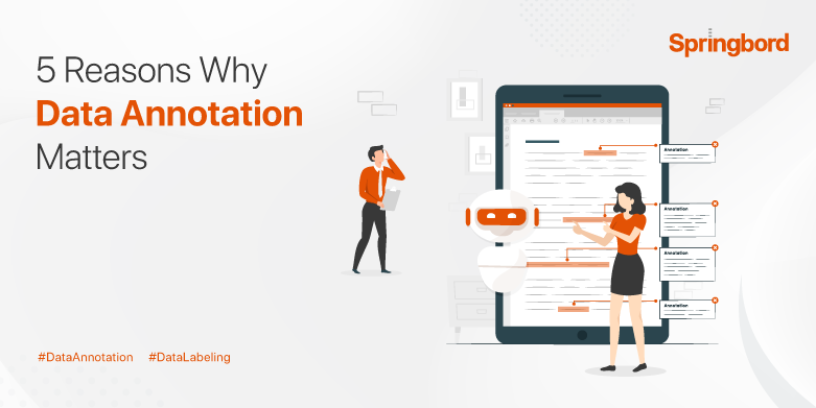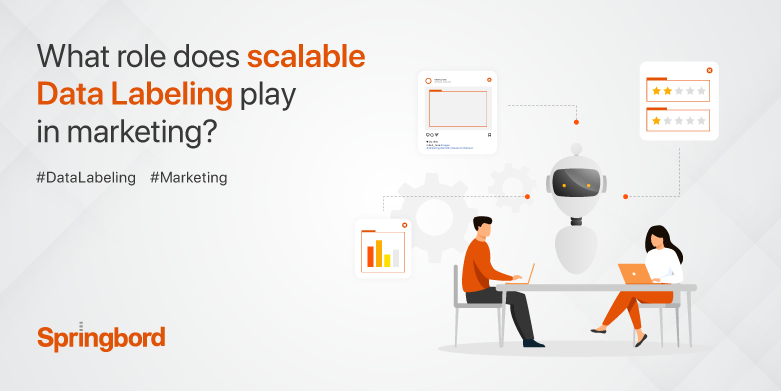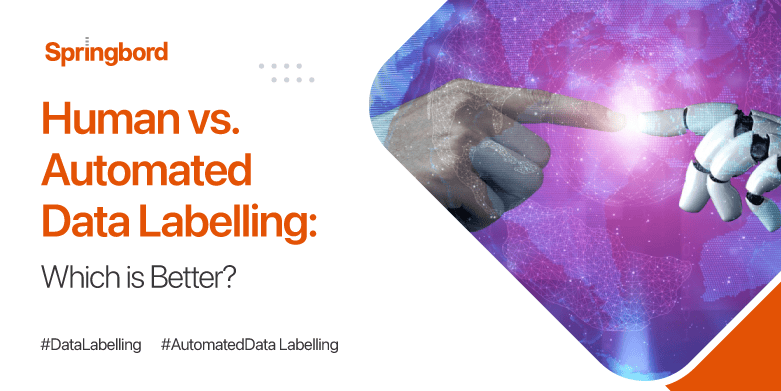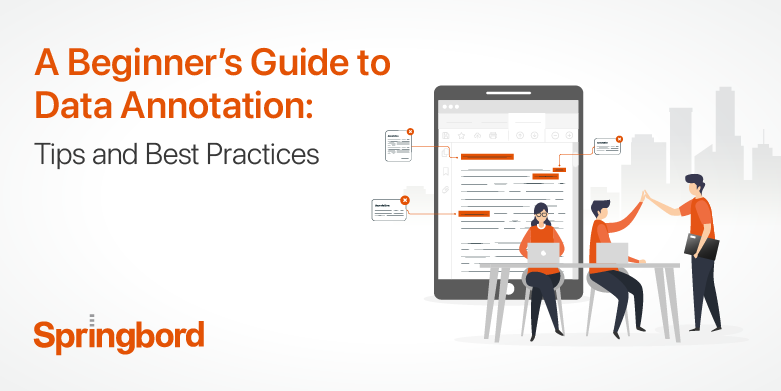 Read time 4 min
Read time 4 minArtificial intelligence (AI) and machine learning are here to stay. They have changed the way we live and experience the world around us.
These technologies throw up some amazing opportunities that can help drive the global economy. Be it music, banking, or medical care, you will find machine learning and algorithms powering the latest innovations.
Challenges in In-House Data Annotation
While AI success relies heavily on annotated data, building and managing a data annotation process in-house can be a daunting challenge for most organizations. Here are some of the common pitfalls:
A. High Operational Costs
Setting up an internal data annotation team involves hiring skilled annotators, investing in training, infrastructure, and managing QA processes, all of which can become costly over time.
B. Time-Consuming & Resource-Intensive
Data annotation is often tedious and laborious, requiring thousands of data points to be labeled accurately. It diverts resources away from core development tasks and slows down AI project timelines.
C. Inconsistent Output Quality
Without rigorous standards and QA protocols, in-house teams may deliver inconsistent or error-prone results, impacting the accuracy of AI models.
Risk of Cognitive and Demographic Bias
Homogeneous internal teams may unconsciously introduce bias, reducing model performance across diverse user groups or geographies.
Why Accurate Data Annotation Is the Foundation of AI Success
In order to enable the machines to do their jobs well, they require quick and easy access to the right kind of data. This data has to be first annotated accurately and in a structured manner. Here are the top reasons why data annotation services are important.
Saves Time
Data preparation is one of the essential tasks in AI projects and requires a great deal of time and effort. By getting third-party providers to annotate the data, you can make it use more quickly and dedicate resources to more important tasks. D
ata annotation by an outside entity also helps eliminate detrimental biases in AI. When a large and diverse team of human annotators handles the data, it brings about better demographic distribution for projects.
Enhanced User Experience
With data annotation, AI models can simplify things for users and enhance their experience. It enables users to enjoy a seamless experience wherein their queries are answered, problems resolved, and tasks executed with ease. This is especially useful in AI channels such as chatbots, search engines, and automation.
Bad Data Can Prove Costly
If you do not use accurate and relevant data, it can lead to negative experiences and thus, mean a dwindling customer base. When the data annotation is not done properly, there is the possibility of AI misunderstanding the intent.
Take, for instance, a chatbot used for flight travel reservations that encounter the phrase “cancellation fee”. If a customer is asking about the fee charged for cancellations and the chatbot mistakes it as a request for cancellation, the reservation could be canceled. Here, it would cost the airline business and leave the customer with a negative experience.
Ensures Effective Results
AI models can be called successful when they provide efficient results. When the data is aptly annotated, there is no scope for mistakes and AI models will deliver effective and precise results. When done right, annotation can even help AI models vary their responses in keeping with unique problems and situations.
Uses of Data are Constantly Evolving
From biometrics to self-driving vehicles, how we use data for AI projects is expanding by leaps and bounds. To usher in an AI-reliant future, it is essential that the data be clean and accurately annotated. This makes the role of human data annotators critical.
Data labeling companies offer customized solutions for all your data labeling and annotating needs to reduce your workload. With an in-house team of experts having specialized industry experience, companies such as Springbord can cater to your data processing needs.
Why Outsource Data Annotation?
To overcome in-house limitations, outsourcing data annotation has become a strategic choice for businesses looking to scale AI initiatives efficiently. Here’s why:
1. Scalability with Dedicated Expert Teams
Specialized vendors can scale annotation volumes quickly, with trained annotators ready to handle high-throughput projects across diverse domains.
2. Access to Industry-Specific Knowledge
Providers like Springbord offer annotators with deep experience across verticals like healthcare, retail, and finance — ensuring domain-relevant accuracy.
3. Advanced Tools and QA Processes
Outsourcing partners utilize AI-assisted tools, annotation platforms, and multilayered review processes to ensure precision, consistency, and speed — all while maintaining compliance and data security.
4. Cost Efficiency and Faster Turnaround
By leveraging offshore resources and optimized workflows, companies can reduce overall project costs and accelerate time to market.
Conclusion
As artificial intelligence continues to shape the future across industries, the importance of precise, reliable, and scalable data annotation cannot be overstated. Whether you’re developing chatbots, autonomous systems, or intelligent platforms, clean and contextually annotated data is what drives meaningful outcomes.
Outsourcing data annotation services to experienced providers like Springbord ensures not only high-quality results but also reduced turnaround time and operational efficiency. Partnering with the right experts can make all the difference in accelerating your AI initiatives while maintaining accuracy and consistency.
FAQs
What is data annotation in AI?
Data annotation involves labeling or tagging data (text, images, video, audio) to help AI models understand and learn from it accurately.
Why is data annotation important?
Without accurately annotated data, AI models can’t recognize patterns or deliver correct outputs, leading to poor performance.
How does poor data annotation impact business?
Mislabeling or inaccuracies can result in customer dissatisfaction, operational errors, and financial loss—like misinterpreted chatbot commands.
Can data annotation improve user experience?
Yes. With correctly labeled data, AI-powered platforms can offer quicker, more relevant responses and personalized experiences.
What industries use data annotation services?
Data annotation is used across healthcare, finance, automotive (self-driving cars), e-commerce, and more.
Should I build or outsource my annotation team?
Outsourcing to expert service providers like Springbord ensures speed, accuracy, and scalability at a lower cost.
What makes Springbord a reliable partner for annotation?
Springbord offers domain expertise, dedicated teams, and custom annotation solutions tailored to your AI goals.







